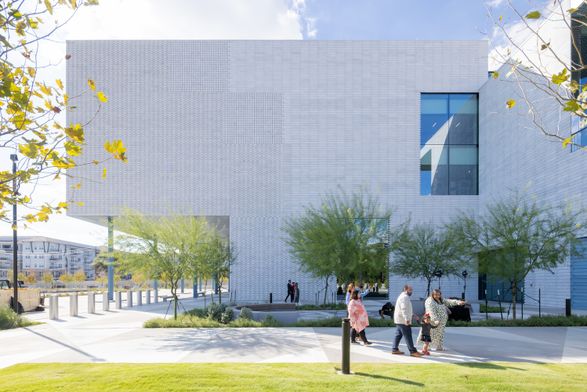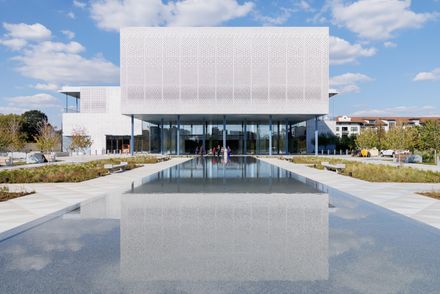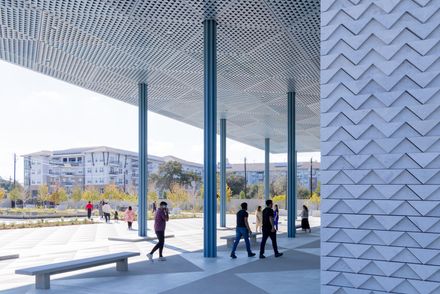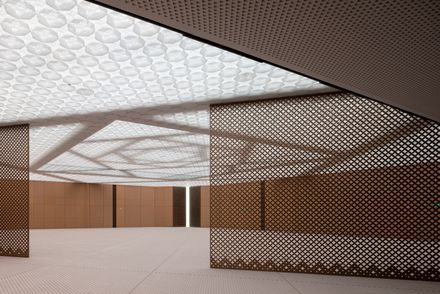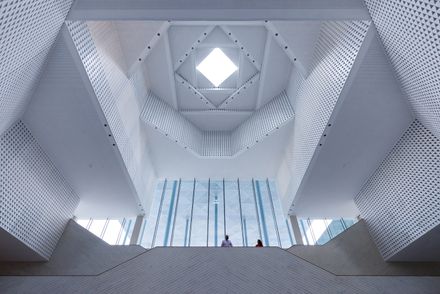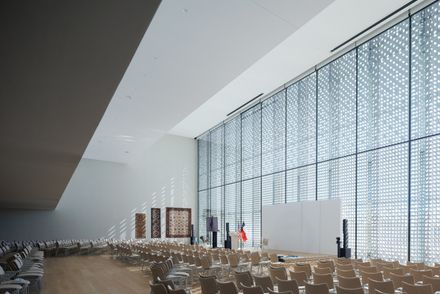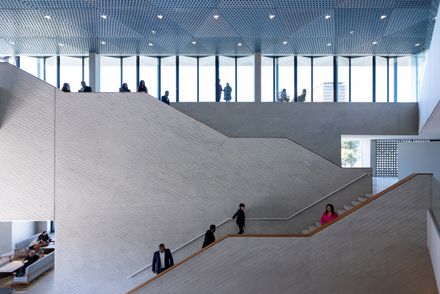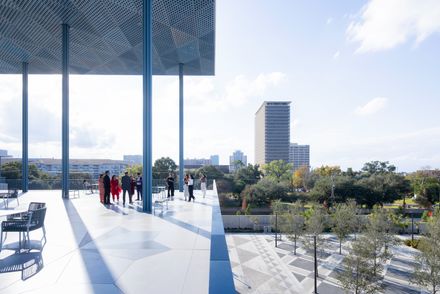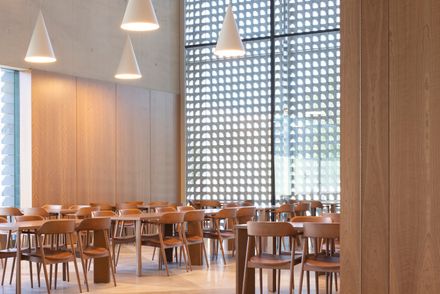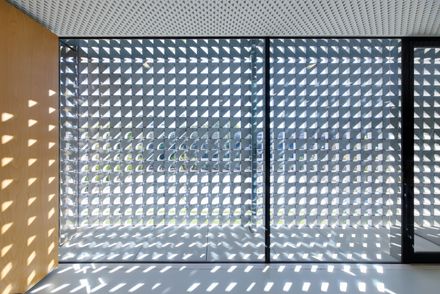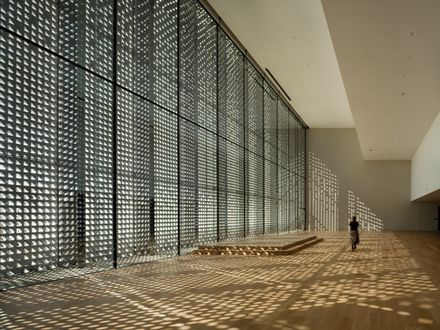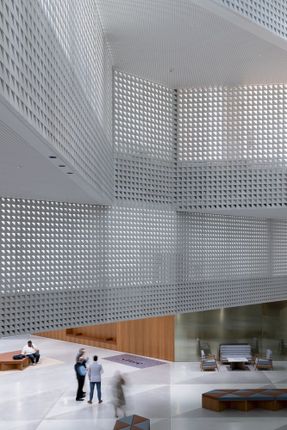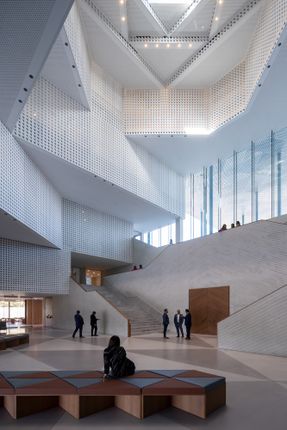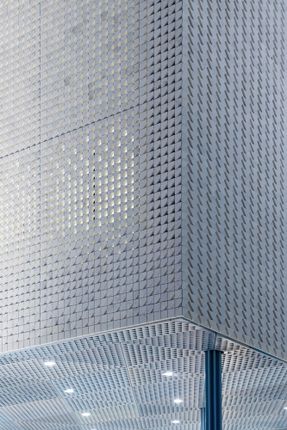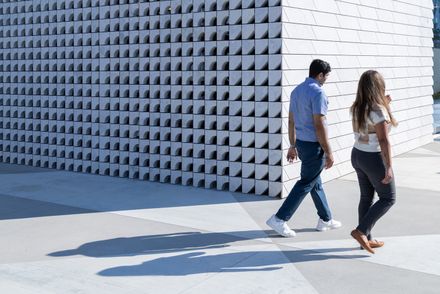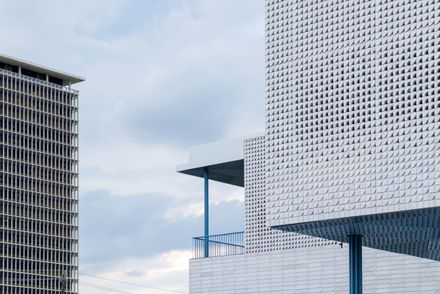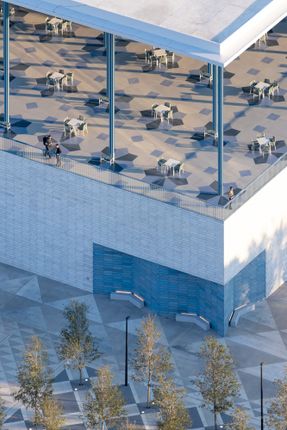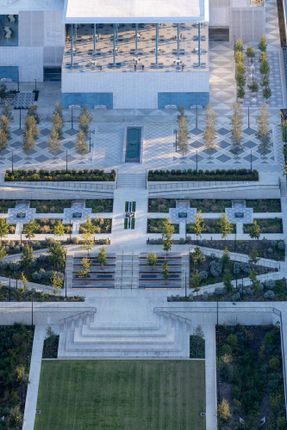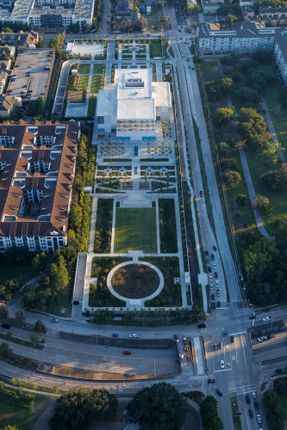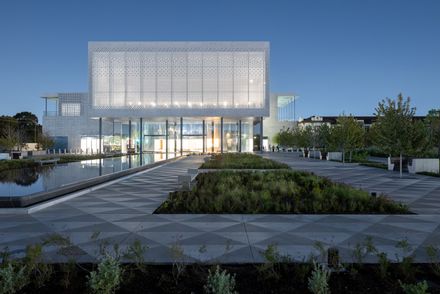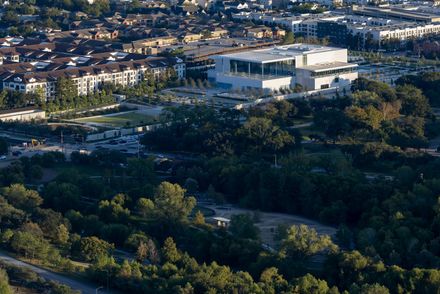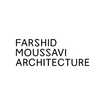
The Ismaili Center Houston
ARCHITECTS
Farshid Moussavi Architecture
ARCHITECT
Farshid Moussavi Architecture
STRUCTURAL AND FACADE ENGINEER
Akt Ii
LANDSCAPE ARCHITECT
Nelson Byrd Woltz Landscape Architects
ARCHITECT AND ENGINEER OF RECORD
Dlr Group
CONTRACTOR
Mccarthy Building Companies
PHOTOGRAPHS
Iwan Baan, Nic Lehoux, Salina Kassam
YEAR
2025
LOCATION
Houston, United States
CATEGORY
Cultural Center, Sustainability
A Space for Reflection, Dialogue, and Discovery - Ismaili Centers around the world serve as ambassadorial buildings, welcoming people of all backgrounds to explore the intersections of faith, culture, and civic life.
Each embodies the Ismaili community's commitment to peaceful pluralism, intellectual engagement, and shared humanity, offering a place for spiritual reflection, cultural exchange, and public dialogue.
The Ismaili Center Houston continues this tradition, envisioned as a living home for the mind and spirit – a place where programmes in education, art, music, performance, and conversation come together to foster understanding among people of all backgrounds.
Within its walls, visitors will find permanent and rotating art exhibitions, a black box theatre, function rooms, a café, administrative offices, classrooms, and a Jamatkhana (prayer hall for Ismaili Muslims) that anchors the complex in devotion and community. In keeping with the Ismaili ethic of service, the Center is staffed largely by volunteers.
By welcoming organisations that advance the common good, from education and the arts to public health, environmental awareness, and social equity, the Ismaili Center Houston will be a place of connection, learning, and openness, nurturing the exchange of ideas that strengthen the fabric of civic life.
"The City of Houston is proud to welcome the Ismaili Center, a place where people from every background can come together in dialogue, understanding, and learning.
When I visited the site during construction, I could already see what it would mean for our city. Now that it's complete, it stands as a new monument along the Allen Parkway corridor and a beacon of light surrounded by some of our most treasured neighbourhoods and cultural institutions.
The Ismaili Center truly reflects the best of Houston's spirit: our diversity, our compassion, and our commitment to community. It's a place that invites all Houstonians to come together and celebrate what connects us," said Mayor Whitmire.
Architectural Dialogue Between Tradition and Modernity - Rather than replicate historical styles, the architecture of the Ismaili Center Houston translates enduring ideas from across the Muslim world – structure as legible order, ornament as human scale, repetition as unity, and light as material – through contemporary craft.
Inspiration from Persian domestic and palace traditions is evident in the eivans (verandas) and in perforated stone screens that temper light and privacy. Large geometric moves resolve into intimate detail, yielding spaces that feel clear, calm, and timeless, rather than trend-driven.
Shaped by Houston's climate and the site's geography, the Center choreographs a porous sequence of eivans and atria that pair shaded outdoor rooms with luminous interiors.
These covered thresholds invite year-round movement between inside and out and remain open for informal use beyond scheduled programmes, reinforcing the Center's civic mission as a daily destination for gathering, reflection, and exchange.
Materials were chosen for beauty, clarity, and a 100-year life. The exterior employs small, varied stone tiles that read as quiet massing from afar and refined ornament up close.
Inside, a restrained palette featuring silk-laminated glass, steel, wood paneling, and ultra-high-performance concrete elevates geometry over finish. Screens shift from triangular apertures to subtle scallops to widen seated views while maintaining structural integrity.
Above, an oculus (skylight) crowns the central atrium opposite the Jamatkhana (prayer hall) doors, aligning sky and sanctuary. Sited at the property's highest point above the 500-year floodplain, the building is protected, and the underground parking garage is designed to take on water when necessary.
Landscape of Reflection and Resilience - For Woltz, the Ismaili Center Houston represents the culmination of more than a decade of research into how the landscapes of the Muslim world can find new relevance in the 21st century.
The Ismaili Center Houston marks Nelson Byrd Woltz's fourth project completed for the Aga Khan Development Network.
When His Late Highness Prince Karim Aga Khan IV engaged the firm in 2011, he tasked Woltz and his team with a year-long study across historic sites in Spain, Egypt, and India to explore the spatial, sensory and cultural dimensions of Islamic gardens, such as the sound of water, the scale of walls, the rhythm of geometry and the symbolism of enclosures.
The insights from this study informed the firm's approach to subsequent projects, including the Ismaili Center Houston. Drawing on those lessons, Woltz approached the Ismaili Center in Houston as both a work of environmental engineering and a living expression of cultural continuity.
The site was selected for its gentle slope toward the Buffalo Bayou, a topography that echoes ancient Persian gardens stepping down to a river.
Woltz's design transforms this terrain into a resilient system of terraced lawns, reflecting basins, and flood-adaptive gardens, capable of withstanding Houston's 500-year storm events.
Working with Professor Hanif Kara of London-based structural engineering firm AKT II, the team embedded a subtle geometric grid through both building and landscape, ensuring that every path, fountain, and tree aligns in quiet visual harmony to follow ancient traditions of eastern cultures.
Enclosed by sound-mitigating garden walls soon to be covered in creeping fig, the Center forms a tranquil enclave – shielded from the city yet deeply connected to its ecology.
Beyond its aesthetic and environmental ambitions, the landscape embodies the Ismaili ethos of community, stewardship, and belonging.
Woltz conceived the plantings as a "transect of Texas", beginning with desert species like paddle cactus and agave, and moving through the prairie to the Gulf Coast, mirroring the adaptability of the Ismaili people in new homelands.
Designed not as a static garden but as a living, evolving ecosystem, the site will mature over time. "It's not just about beauty," Woltz notes. "It's about creating a place that brings people together in calm and reflection – a landscape of connection, resilience, and care."
A Collaborative Achievement and a Civic Gift - The Ismaili Center Houston adds a defining new layer to the city's reputation as a cultural capital of the American South, joining neighbouring landmarks such as The Menil Collection, Rothko Chapel, Asia Society Texas, Cistern, and the Museum of Fine Arts, Houston.
More than a place of worship or art, the Center stands as a symbol of openness – a space where communities converge to learn from one another, celebrate shared values, and imagine a more connected world.


